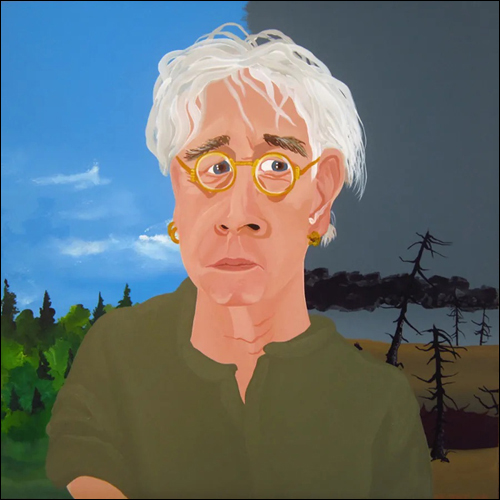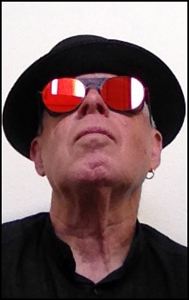by Mike Devlin – Times Colonist
AN EVENING WITH BRUCE COCKBURN
Where: Royal Theatre, 805 Broughton St., Victoria
When: Tuesday, March 11, 8 p.m.
Tickets: Sold out
11 March 2025 – Over the course of his five-decade career, Cockburn has found other ways to be productive, with activism being one his main priorities.

Bruce Cockburn is known widely for being a great interview subject, with insightful takes on a range of topics. He’s intelligent, perceptive and respectful.
But when the Times Colonist caught up with the iconic folk singer and activist last week, he was reeling. It was the day after U.S. President Trump addressed Congress for the first time, and Cockburn, a resident of San Francisco, was having none of the political hyperbole on this afternoon.
He accused Trump of exploiting the psychoanalytic “death drive” theory, which is manifested through self-destructive behaviour.
“Humankind, we live in this tension between the recognition of our inter-dependence and the need to self-destruct,” Cockburn said. “Here’s the species, tipping back and forth, saying, ‘Which way are we going to go?’ . And right now, all the weight and energy is on the side of chaos.”
Cockburn said he was taking a wait-and-see approach to the recent turn of events south of the border, but he fears the worst.
“It’s one thing to blather on like [Trump] does, and it’s another thing to actually do stuff. If it goes to the worst-case scenarios, which are fairly obvious right now, it will be a disaster for everyone on the planet.”
The 13-time Juno Award winner has outlived several threats to democracy, so he knows there’s some light at the end of the tunnel.
The member of the Canadian Songwriters Hall of Fame and Governor General’s Performing Arts Award for Lifetime Artistic Achievement winner has made a career of writing about such things, but he does not have anything imminent to say about Trump — at least not now.
“It doesn’t work like that,” he said with a laugh.
“Sometimes things take a long time to percolate. There’s some horrifying and scary stuff going on, and some repulsive stuff going on, but the strong feelings associated with that don’t necessarily produce a song.”
Over the course of his five-decade career, Cockburn has found other ways to be productive in that regard, activism being one his main priorities. He’s lent his name and efforts to everything from Oxfam and Doctors Without Borders to Amnesty International and Friends of the Earth, and has been awarded numerous honorary doctorates and degrees, including one from the University of Victoria.
He is touring across North America, with a 28-date tour that stops tonight at the Royal Theatre.
The show is sold-out, which is a common occurrence as the 79 year-old continues his career more than 60 years after it began. During that time, he has released 35 albums, the majority of which are known for their innate spirituality and musical diversity.
For all his talents, Cockburn is not the type of songwriter who writes a song immediately after seeing or hearing something impactful.
The only example he could think of was If I Had a Rocket Launcher, one of his best-known compositions, which was inspired by a 1983 humanitarian mission through South America with Oxfam.
“I spent three days in these refugee camps, and when I let it sink in, that produced a song,” he said. “The thoughts don’t necessarily coalesce into something you can present to people automatically.”
By his own admission, he’s more interested in the big picture than the details. Human interaction is where his interest lies more often than not, and he has written about love and relationships more than any other topic in his catalogue.
His pace has slowed somewhat — his latest, 2023’s O Sun O Moon, is his first vocal album since 2017, and only his third album since 2011 — but he was in a collaborative mood on the recording, which features contributions from Shawn Colvin, Allison Russell, Buddy Miller, Susan Aglukark and Colin Linden, among others.
He realized how meaningful human connection can be, especially when the world feels like it is falling to pieces.
“I live a fairly unsocial life. It’s not anti-social, but I don’t get out much and I don’t see very many people. I’m not in a music scene of any sort, and I kind of regret that in a way. I’m getting a little tired of my own company, creatively. Whenever there is a chance to work with someone else, it feels really good.”
mdevlin@timescolonist.com
Credit: Bruce Cockburn steps out, with the weight of the world upon him
















